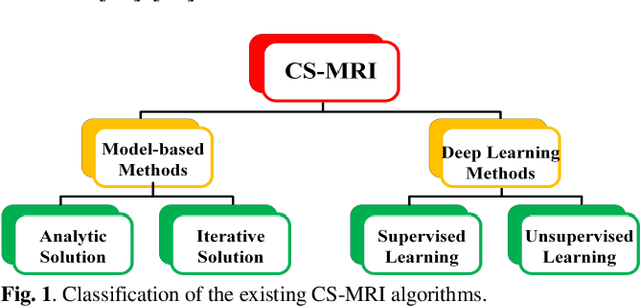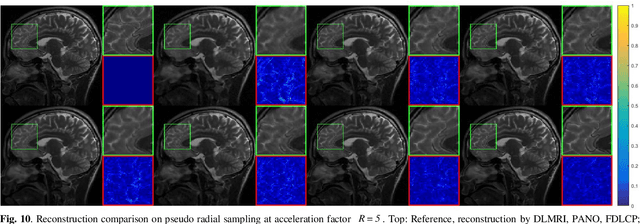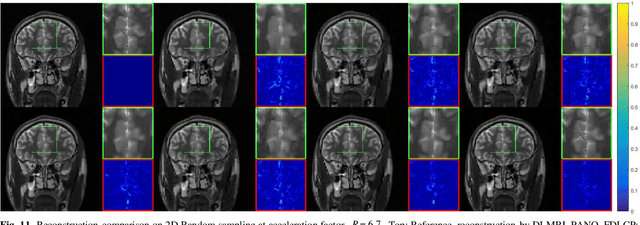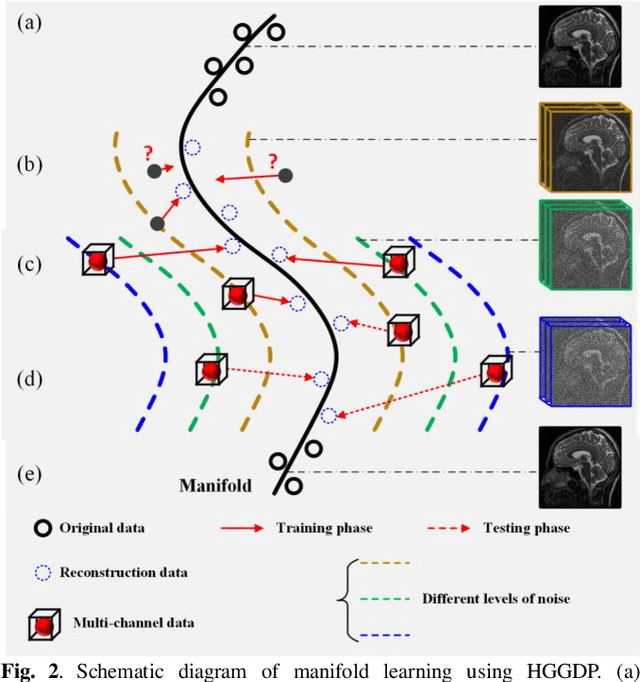Homotopic Gradients of Generative Density Priors for MR Image Reconstruction
Paper and Code
Aug 14, 2020



Deep learning, particularly the generative model, has demonstrated tremendous potential to significantly speed up image reconstruction with reduced measurements recently. Rather than the existing generative models that often optimize the density priors, in this work, by taking advantage of the denoising score matching, homotopic gradients of generative density priors (HGGDP) are proposed for magnetic resonance imaging (MRI) reconstruction. More precisely, to tackle the low-dimensional manifold and low data density region issues in generative density prior, we estimate the target gradients in higher-dimensional space. We train a more powerful noise conditional score network by forming high-dimensional tensor as the network input at the training phase. More artificial noise is also injected in the embedding space. At the reconstruction stage, a homotopy method is employed to pursue the density prior, such as to boost the reconstruction performance. Experiment results imply the remarkable performance of HGGDP in terms of high reconstruction accuracy; only 10% of the k-space data can still generate images of high quality as effectively as standard MRI reconstruction with the fully sampled data.
 Add to Chrome
Add to Chrome Add to Firefox
Add to Firefox Add to Edge
Add to Edge